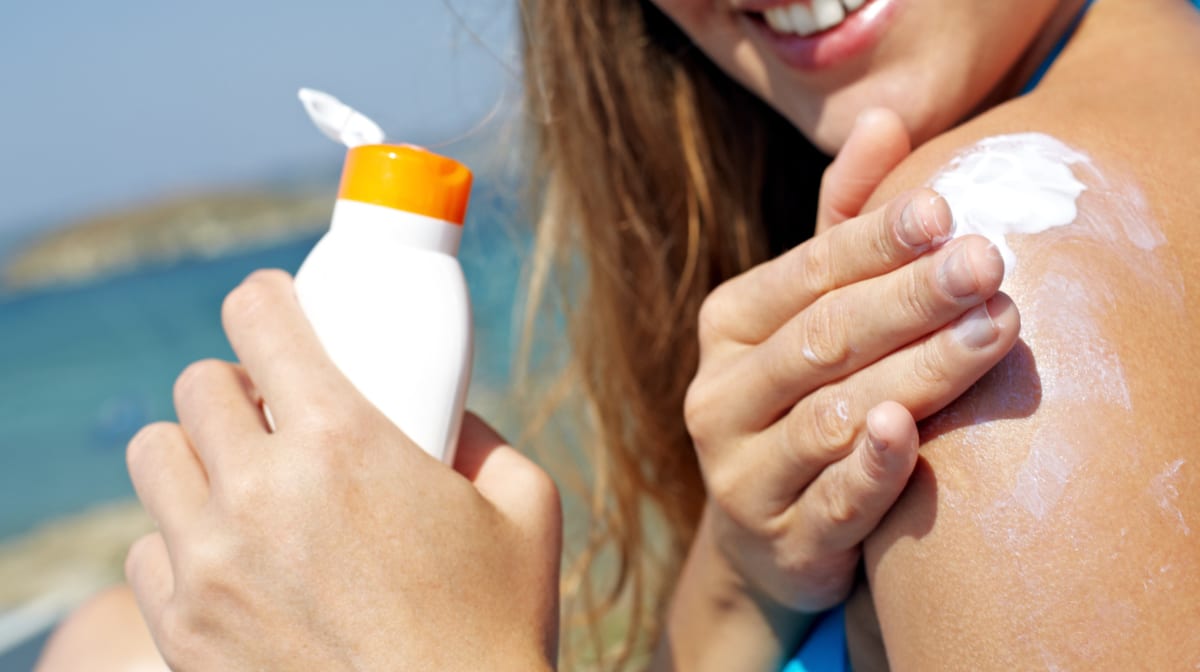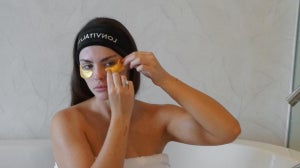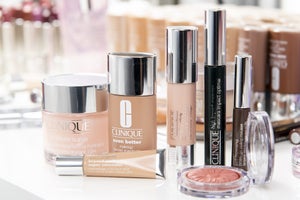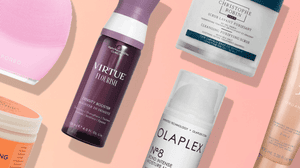
Summer is well and truly in full swing, with the temperatures to prove it. If you're always out and about, to the beach, park or anything outdoorsy, SPF is a necessity in your beauty toolkit. However, you'd be surprised at how many of us actually neglect this step on the day to day.
UVA and UVB rays can penetrate the skin's surface year-round, even in Winter when even the smallest step outside leaves you shivering. As a result, SPF is a product you need in your arsenal no matter what you're doing or what time of year it is. It can definitely be a task, though -- we're not denying it.
5 Things You Need to Know When Choosing an SPF
If you want to make a habit of wearing SPF daily, a good place to start is by knowing what works (and what doesn't). Not all sunscreens are created equally, and neither are our complexions. Keep on reading to find out the top things you need to take into consideration when choosing your perfect summer SPF.
Not all sunscreen is broad spectrum
Off to spend the day at the beach? You'll want to protect your skin against burning, which is caused by UVB rays emitted by the sun. However, did you know that there's also another type of light that can affect your skin just as much? These are called UVA rays, and although they don't burn the skin as we typically know it, they're a huge contributor to physical ageing signs. The effects of too much UVA exposure include hyperpigmentation, skin thickening, wrinkles, fine lines and more.
That's where your broad spectrum sunscreen is going to come in, as broad spectrum sunscreen products protect against both UVA and UVB rays. A lot of sunscreens only cover UVB, and so won't declare themselves as broad spectrum. To ensure you're both entirely sun safe and don't incur skin-ageing damage, make sure you pick up a broad spectrum formula.. Check out some of our faves below.
Facial sunscreens and body sunscreens are different
If you're new to SPF products, you likely will have one go-to sunscreen, that come Summer you apply all over your face and body. There's actually a major difference between facial sunscreens and body sunscreens, and taking heed of this could be the answer to a bunch of summer skin concerns.
Body sunscreens are often formulated with a high concentration of alcohol, and can feel greasy or oily to the touch after application. A huge mistake is rubbing this formula all over your skin, especially if you suffer from acne, breakouts, dehydration or sensitivities. Alcohol is a known dehydrating agent, whereas that greasiness often means your product isn't non-comedogenic and so, will block up the pores. Instead, opt for a face-specific sunscreen to offer best protection from the sun - your skin will thank you for it!
SPF comes in a variety of formulas
When we think of SPF, sunscreen is the first thing that comes to mind. But, the beauty world is a lot more clued on than you might know -- so many products, both makeup and skincare, now come packed full of sun protection benefits. If you find it hard to incorporate sunscreen into your daily routine, this is your easy way out. After all, something you own is bound to include SPF, or there'll be a simple switch-up you can make to take all of the effort out of protecting your skin.
One way to work SPF into your existing beauty regimen is through your moisturiser. Many moisturisers are now formulated with SPF to protect the skin against damaging rays all year 'round. They also ensure a range of benefits are imparted onto the complexion in addition to protecting and nourishing. Simply slick on your favourite protective formula, apply any makeup you like over the top and head out into the world!
A higher number doesn't necessarily mean more protection
SPF ratings can be extremely misleading -- this may come as a surprise, but the 'magic number' detailed on the front of the tube doesn't actually refer to how well it will protect your skin. The SPF number actually indicates how long it takes to burn your skin after application, compared with how quickly it may burn without sunscreen on. So, an SPF 15 product may still protect you for a few hours if applied correctly, and not altered by swimming or sweating.
But, when wearing sunscreen, we generally partake in these activities, right? That's why SPF 30 or 40 products may only be incrementally more effective than the 'lower' graded sunscreens. Jumping in the pool or feeling the heat on a sweltering day reduces how effective your SPF is, meaning you should be reapplying to prevent against sunburn. SPF 15 also blocks out 93% of rays, whereas SPF 30 tackles 97% and SPF 40 98%. These small differences don't even come into play when your sunscreen is constantly being stripped away.
Instead of focusing too hard on the 'ideal' SPF number, ensure you're always opting for broad spectrum and are reapplying as often as needed. Once an hour or so will suffice without any contact with water, but ensure you're immediately after a swim if you're at the beach or pool. Don't get us wrong, though -- we love our SPF 50. It's all about what keeps you feeling protected!
Lips, hands and feet need SPF too
Even if you're a total beach babe who knows their way around the SPF, we're sure you've neglected a few areas from time to time. Yep, we're talking about those easy-to-forget spots such as your lips, hands and feet. If you've ever wondered why you experience chapped lips or thickened skin on the hands and feet come summertime, it's probably because they've received very little SPF protection in your lifetime. Addressing these areas is key to an all-round, immersive sun care routine.
For the lips, all you'll need is a quality lip balm or ointment that's loaded with SPF. As we're always eating, drinking and chatting away with our mouths, ensure you're reapplying as frequently as you see fit -- twice an hour is a good benchmark.
Hardworking hands and feet are also worth adding to your SPF routine, as the skin in these areas can grow thick and hard from too much sun exposure. They're also incredibly uncomfortable when burned! An SPF hand cream or lotion will suffice for both areas, and will help with nourishing and smoothing the skin as well as protecting against sun damage. Apply of a morning on regular days, or once an hour when you're at the beach or pool.
Discover more of our Summer go-tos-products today with our Summer Shop
| Love to protect your skin? Discover our edit of the best products for sensitive skin. |









